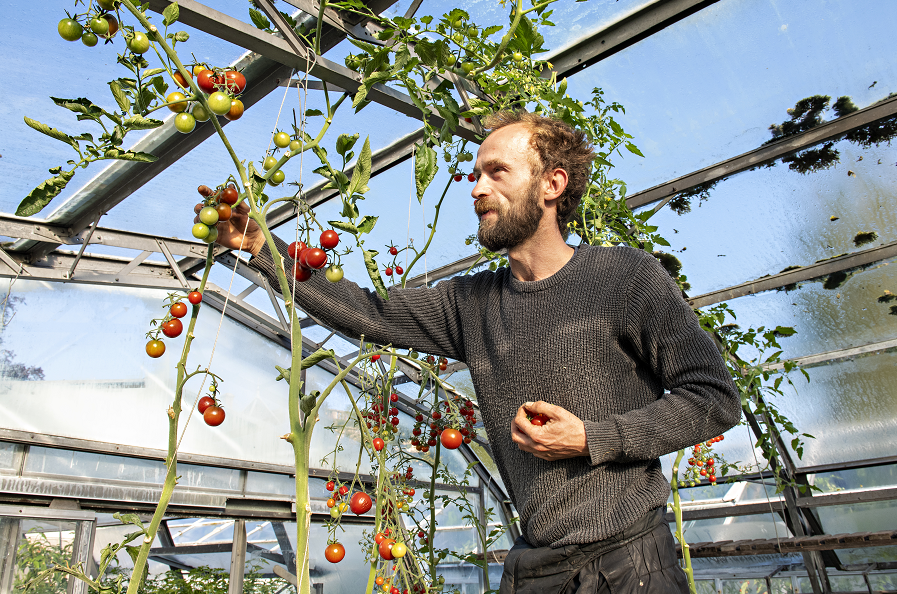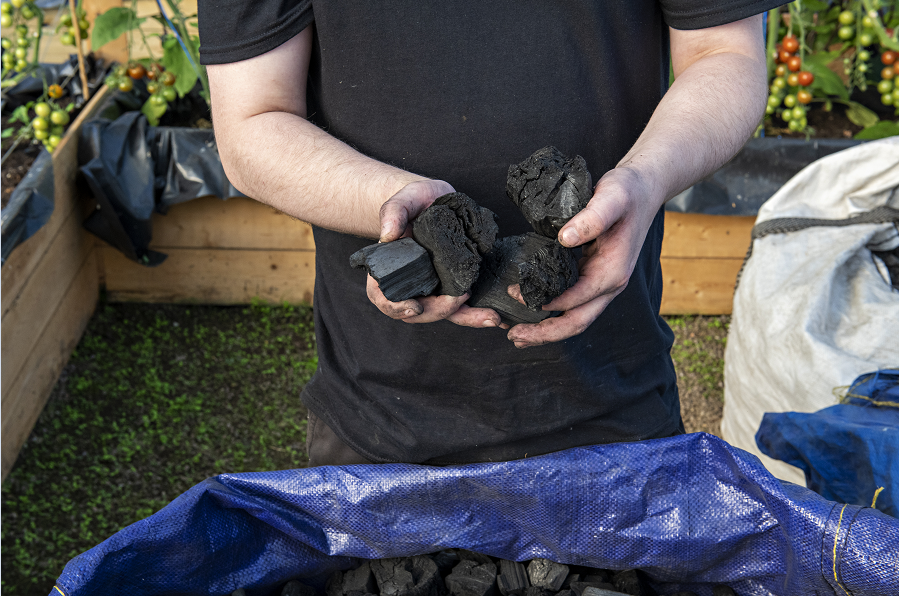Climate Week Scotland 2022: Sustainable Thinking Scotland CIC
To mark Scotland’s Climate Week 2022, we caught up with Sustainable Thinking Scotland CIC, our Climate Conscious winner at this year’s Scottish Charity Awards. Hear from Sean Kerr, director at Sustainable Thinking Scotland to learn about their important contributions to a net zero society and their advice for organisations just getting started with their climate emergency work.
Tell us about Sustainable Thinking Scotland and its mission
Sustainable Thinking Scotland CIC was established in October 2016 and is a social enterprise based within the walled garden at Kinneil Estate in Bo’ness, Falkirk. From our off-grid community hub, we help to tackle local, social and environmental issues via a range of projects covering themes such as food growing, community wellbeing and green waste recycling.
With the rising need for support nationally, we hope our work will develop a blueprint for how communities can provide sustainable social support to its members in the long-term.

What challenges does climate change present to your organisation and the beneficiaries you support?
The rising cost of living is pushing more and more people to require foodbank support and given the effects that the changing climate is having on the growing season, more needs to be done to ensure we have sustainable food systems into the future. Current agricultural techniques, where chemical fertilisers are applied to land, are hugely inefficient and the run-off they generate are the leading cause of water problem, such as eutrophication and toxic blue green algae.
How is Sustainable Thinking Scotland addressing the climate crisis?
We are addressing the climate crisis on three fronts: raising awareness, delivering action, and providing educational and employment opportunities.
"Understandably, this provides significant carbon savings - with 3 tCO2e removed for each tonne of wood we convert - which is equivalent to the vehicle emissions from driving a car from Lands End to John O Groats twelve times - and the finished biochar product can then be used to tackle several agricultural, ecological, and environmental issues."
We currently work closely with Falkirk Council’s carbon management team, helping to deliver awareness raising events, open days, and workshops, spreading the word about a more sustainable way of living.
With our green waste recycling project, we aim to create a circular economy around biochar - stable carbon obtained from 'baking' organic matter in limited oxygen – similar to making charcoal.
We currently produce this from local wood waste, obtaining the trees at the end of their life cycle and after they have done a great job of capturing CO2 from the atmosphere. If sent to landfill, these trees would decay and release the CO2 they have stored, however, by converting it to biochar, it locks that carbon into a stable physical form, which won’t decay for 1000 – 5000 years.
We are addressing several environmental problems with our biochar project. Firstly, sequestering the carbon from wood waste in the form of biochar - providing measurable carbon reduction, then using that biochar to collect wayward nutrients which cause problems in water, then taking those collected nutrients and putting them back to their original
use - food production, which will allow us to grow more food for our local foodbanks. This allows the biochar, which was derived itself from a waste stream, to help benefit society at 4/5 points during its life cycle.

As part of our research project alone, we have converted over 6 tonnes of waste wood biomass into biochar resulting in a carbon reduction of 18tCO2e, and when we reach our site capacity, we hope to be able to abate approx. 450 tCO2e per year, effectively reducing Falkirk Council's carbon footprint by 1%.
As we enter in to these new environmental remediation markets, we are thrilled to be able to offer new roles and positions within Scotland’s low carbon and green economies. Working with our local schools and university partners, we hope to offer a pathway for local young people to begin their own climate conscious careers.
What part does the wider voluntary sector have to play in your work?
Our volunteers are at the heart of everything we do and they have helped us develop so much over the last few years. With each hour volunteered, they bring us a step closer to realising our dream: a farm behind every foodbank, financed by solving ecological and environmental problems at a national scale.
Working with the voluntary sector, we hope to offer green education and employment opportunities, leading to a more connected and resilient society, and a more sustainable thinking Scotland.
"We would all love to do everything sustainably, but remember you are not competing against perfection, you are just trying to do better than you did yesterday."
What advice would you give to voluntary organisations looking to take a more sustainable approach to their work?
Start with the small common sense things – use less, recycle more, conserve energy, use vehicles less, and walk more. They aren’t the most glamourous aspects of sustainability but they work and every little change will help us all make a bigger one. When people think of net zero, they think of sweeping wholesale changes, but for most people that simply isn’t possible.
Interested in learning about SCVO's Climate Crisis work and how we're supporting the sector on its journey to net zero? Find out more here.



